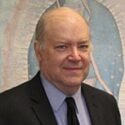Can Catholics Apply the Principle of Probabilism to Abortion Decisions?
Some baptized Catholics who support abortion use a distorted understanding of Church teaching on the “primacy” of conscience to support their views. They also frequently misrepresent theological principles regarding Catholic sexual ethics. One of the most common abuses involves probabilism, which simply means that if a definitive judgment has not yet been rendered by the Magisterium on a moral or doctrinal question, then there is freedom to decide what to believe and what course of action to take after carefully examining the evidence.1
Although there are many examples of this, we might consider just one, which is the precise definition of “ordinary” and “extraordinary” means of medical treatment at the end of life. Faithful moral theologians accept the Church’s teaching that extraordinary means are not required to preserve life, but they continue to debate (in the proper context so as not to scandalize the faithful) what this means, based on emerging science and the pastoral and professional experience of those who serve in these areas. When the Church is ready, she will advance her teaching based on a sober consideration of all the evidence, while preserving established principles.
Former Catholics for [a Free] Choice Board member and ex-priest Daniel Maguire presents the most common errors regarding probabilism:
The Catholic doctrine of probabilism … blesses diversity of opinion in morally debated areas…. Ubi dubium, ibi libertas—“where there is doubt there is freedom”—is probabilism’s cardinal principle…. The hallowed Catholic tradition of probabilism taught that in respectably debated issues, where good people for good reason disagree, conscience is free.2
Maguire bases his understanding of probabilism on whether or not people disagree on an issue. Indeed, there are even small minorities who support such evils as child sexual abuse and human trafficking. To subscribe to Maguire’s view of probabilism is to believe that we can do absolutely anything we want.
Church Teaching
The Catholic Church has always prohibited the use of probabilism when she has definitively pronounced on a moral issue. The Church states, “When a prohibiting law is certain, the subjects of the law are bound to abstain from performing the action which the law forbids.” Since the fundamental principle of probabilism is lex dubia non obligat (“a doubtful law does not bind”), we may conclude that an established law does bind, and that the principle of probabilism may never be used when a prohibiting law is certain, as with the Church’s teachings on abortion.3
Noted scholar and apologist Father Peter Stravinkas says, “Probabilism asserted that liberty from a law was to be held in possession until the opposite was held to probably be the case.”4 In other words, if the Church has not definitively pronounced on the permissibility of an action, we may use our prudent judgment to decide, while respecting the principles on which the Church has pronounced.
Theologians originally proposed the principle of probabilism only for those rare instances where scientific or theological knowledge of a subject was incomplete, or where the Church had not yet clearly outlined its teachings on the subject.
There is no doubt whatsoever about the Church’s condemnation of abortion, sterilization and contraception. Therefore, the principle of probabilism does not apply in these cases.
Regarding abortion, no prudent person could possibly conclude that Church law is uncertain. The Church has condemned abortion so consistently and so prominently throughout her history that this teaching is considered infallible under the ordinary Magisterium of the Church. In fact, it is difficult to find any other teaching that is so consistently reiterated in such strong terms.
Therefore, as the USCCB Committee on Doctrine has stated, “Catholic theology does not allow the application of the theory of probabilism in cases which contradict Church teaching or where the risk of taking life is present.”5
In summary, when the Church has definitely prohibited an act, all Catholics must abstain from committing it.
Dissension from Church Teaching
This teaching is no obstacle for the professional dissenter, however.
Maguire simply relies on what he calls “intrinsic probabilism,” which he says “is attained by the individual in a do-it-yourself manner; it is accomplished when an individual person perceives the inapplicability of a particular teaching even without help from theologians or other authority figures.” He continues, “Thus, if you found five or six theologians, known for their “prudence and learning” who held the liberal dissenting view, you could follow them in good conscience even if the other ten thousand theologians—including the pope—disagreed.”6
Once again, this misrepresentation of probabilism is a license to do anything we want, because all a dissenter has to do is find “five or six” theologians who held the “liberal dissenting view”—people that Catholics for a Free Choice, Call to Action, and other dissenting groups are happy to supply.
One of these theologians is Alberto Munera, S.J., who takes the abuse of probabilism to its logical conclusion. He says that “an act can be considered morally wrong only in an individual’s conscience. And because only God can judge conscience, nobody can declare a specific human behavior ‘intrinsically wrong.'”7
In other words, he would rewrite Jesus’ words in John 20:23 to read, “If you forgive the sins of any, they are forgiven; if you retain the sins of any, they are retained, unless, of course, that person feels comfortable with what they did.”
There are great dangers inherent with this interpretation of the principle of probabilism, which is indistinguishable from a straightforward statement of moral relativism.
If this reasoning were valid, it could logically be extended to every moral question. This means that a Catholic could violate any Commandment or any of its derivative laws, and still claim to be a “faithful Catholic.” This is a classic example of reductio ad absurdum. No dissenter would dare to attempt to defend himself in a civil court of law with such a specious argument.
A parallel situation illustrates these pitfalls. Let us say for a moment that a certain self-professed “pro-lifer” is seriously considering shooting a local abortionist. Perhaps he has read the declaration justifying the use of deadly force against abortionists, which was signed by several self-styled “theologians.”
Certainly this potential shooter could find several theologians (not necessarily Catholics) who support the use of deadly force to rescue preborn children. However, even if he could find no theologians to support this view, he could simply use Maguire’s intrinsic probabilism to “perceive the inapplicability of a particular teaching” against murdering abortionists—in his own case.
Obviously, dissenters would never permit the use probabilism to justify the murder of an abortionist or the burning of an abortion clinic. Yet they robustly defend the use of probabilism to rationalize abortion.
Final Thoughts
The dissenter’s application of probabilism is highly selective, and depends entirely upon their ideology regarding the issue being discussed. However, in order to be valid, a theological principle must apply consistently and universally in all possible situations. It may not be used to support only one viewpoint.
Groups like CFFC and CTA can only flourish in a fog of confusion and uncertainty. Dissenters would not dare use the principle of probabilism in the secular sphere. No judge would accept probabilism as a defense if civil law was abundantly clear, because “ignorance of the law is no excuse.” In civil society, if a person has any doubt regarding the legality of an act, he studies the law further, and acts with prudence until its parameters are clear in his mind. He does not simply remain willfully ignorant and do whatever he pleases, intending to present probabilism as a defense in court.
Those who dissent from Church teachings no more sincerely believe in the principle of probabilism than they believe in the primacy of conscience, because they protest vociferously whenever social conservatives or pro-lifers employ either of these in support of their objectives.8
Endnotes
[1] The debate over probabilism began in 1577, when the Dominican theologian Bartolomé de Medina wrote, “It seems to me that it is lawful to follow a probable opinion, even though the opposite opinion is more probable” [Father Frederick Jones, C.Ss.R., Alphonsus de Liguori: The Saint of Bourbon Naples, 1696–1787 (Westminster, Maryland: Christian Classics, 1992), page 279].
There soon cropped up a divide between the Dominicans, who believed that the more probable of two or more opinions should be followed (“probabiliorism”) and the Jesuits, who taught that any solidly probable opinion could be followed (“probabilism”). Eventually, probabiliorism became more and more strict, and probabilists became more and more lax, allowing people to follow advice from anyone, no matter how morally indefensible that person’s argument was. These people became known as “laxists.” This is the path chosen by modern dissenters like Daniel Maguire.Both rigorist and laxist extremes have been condemned by the Magisterium (Denzinger-Schönmetzer 2090–2167, 2301–2332). Eventually, St. Alphonsus Ligouri provided these three principles for our moral decisions:
- God wishes us to be free.
- If an opinion in favor of a law’s applying to this Christian in these circumstances is “certainly more probable” than the opinion that the law does not oblige, the law must be followed.
- Until the Church pronounced definitively on a subject, one may embrace an opinion set forth by wise and prudent persons.
For a definitive discussion of the evolution of probabilism, see Father Russell E. Smith, S.T.D. “Who Are the Auctores Probati?” Ethics & Medics [National Catholic Bioethics Center], June 2000 [Volume 25, Number 6].
[2] Daniel C. Maguire. “Where There’s Doubt, There’s Freedom.” Conscience, Spring/Summer 1993, page 15; Daniel C. Maguire. “The Splendor of Control: A Commentary on Veritatis Splendor and the Elephant in the Living Room.” Conscience, Winter 1993/1994, pages 26 to 29.
Frances Kissling incorrectly describes probabilism this way: “And the important thing is that there is a long tradition in the Roman Catholic Church called probabilism. And probabilism holds that an individual may engage in an activity that is considered factually or legally doubtful if the individual can find a couple of respectable authorities to assert the opinion in a cogent way and in a way that continues to be respectful of the Catholic tradition” [Frances Kissling’s talk during the conference entitled “Antiprogestin Drugs: Ethical, Legal and Medical Issues,” held at the Hyatt Regency Crystal City in Arlington, Virginia, December 6-7, 1991, session entitled “Diverse Perspectives: Feminism, Anthropology and Theology”].
Kissling has also said, “The principle of probabilism in Roman Catholicism holds that where the Church cannot speak definitively on a matter of fact (in this case, on the personhood of the fetus), the consciences of individual Catholics must be primary and respected” [Frances Kissling. “Abortion: Articulating a Moral View.” Conscience, Summer 2000, pages 21, 22 and 27].
[3] This prohibition on the use of probabilism when a prohibiting law is certain has been constant through the ages. The 1917 Catholic Encyclopedia stated, “When a prohibiting law is certain, the subjects of the law are bound to abstain from performing the action which the law forbids, unless they are excused by one of the ordinary exempting causes” (the complete discussion of probabilism in the 1917 Catholic Encyclopedia is available at New Advent). The defenders of probabilism “require a person reasonably to seek direct certainty regarding the moral problem before seeking indirect certainty through the use of reflex principles….for if it [the opinion for liberty] is only slightly probable it has no value against the opinion for law” [New Catholic Encyclopedia. Washington, D.C.: The Catholic University of America, 1967. Volume 11, pages 814 and 815].
[4] Fr. Peter M.J. Stravinkas, Ph.D., S.T.L. [Editor]. Our Sunday Visitor’s Catholic Encyclopedia [Huntington, Indiana: Our Sunday Visitor Press], 1991, page 786.
[5] National Council of Catholic Bishops Committee on Doctrine. “Abortion and ‘Free Choice’: The Catholic Church Teaches Direct Abortion is Never a Moral Good,” November 1984. Even classical moral theology’s emphasis on probabilism prohibits acting on a doubt when an evil result is to be absolutely avoided, such as the taking of a life. To act against a norm when there is such a doubt is to act immorally, because it accepts the evil consequence while grasping at a slim chance that it might not happen after all (this is an important point in the discussion of conscience in any moral theology textbook, such as Marcellinus Zalba, S.J., Theologiae Moralis Summa, Volume I [Madrid: Biblioteca de Autores Cristianos], 1958, page 478]).
[6] Daniel C. Maguire. “Where There’s Doubt, There’s Freedom.” Conscience, Spring/Summer 1993, page 15.
Maguire appears to be paraphrasing the 1917 Catholic Encyclopedia, which states: “The prevailing theory amongst probabilists holds that if five or six theologians, notable for prudence and learning, independently adhere to an opinion their view is solidly probable, if it has not been set aside by authoritative decisions or by intrinsic arguments which they have failed to solve” [emphasis added].
If Maguire is indeed using the Catholic Encyclopedia, he omits the portion of the above quote that is italicized. Once again, the Church has declared repeatedly and forcefully that abortion is never licit. Therefore, the principle of probabilism is inapplicable to abortion. The same 1917 Catholic Encyclopedia article Maguire appears to use also warns, “All moralists agree that mere flimsy reasons are insufficient to give an opinion solid probability, and also…the support of many theologians who are mere collectors of the opinions of others is unable to give solid probability to the view which they maintain.”
[7] Alberto Munera, S.J. “Catalyst for Moral Thinking.” Conscience, Winter 1993/1994, page 38. This article is part of the commentary “Tarnished Silver Anniversary: Reflections on Humanae Vitae.”
[8] For example, CFFC’s defense of unilateral (one-way) probabilism is evident in every issue of its journal Conscience. It continually tries to marginalize the beliefs of pro-lifers by claiming “the majority of Catholics are pro-choice.” In fact, the average issue of Conscience contains at least a dozen references to various polls and surveys. However, if CFFC truly believes that probabilism is a valid theory, why does it continue to condemn pro-lifers as a “small and vocal minority?” If, as Daniel Maguire claims, we must respect the views of “five or six out of ten thousand,” why does CFFC not respect the views of a much larger percentage of society—the many millions who consciously describe themselves as pro-life? CFFC has distorted the principle of probabilism far beyond its permissible boundaries in order to suit its own purposes.
Did you find this useful?
Dr. Brian Clowes has been HLI’s director of research since 1995 and is one of the most accomplished and respected intellectuals in the international pro-life movement. Best known as author of the most exhaustive pro-life informational resource volume The Facts of Life, and for his Pro-Life Basic Training Course, Brian is the author of nine books and over 500 scholarly and popular articles, and has traveled to 70 countries on six continents as a pro-life speaker, educator and trainer.






